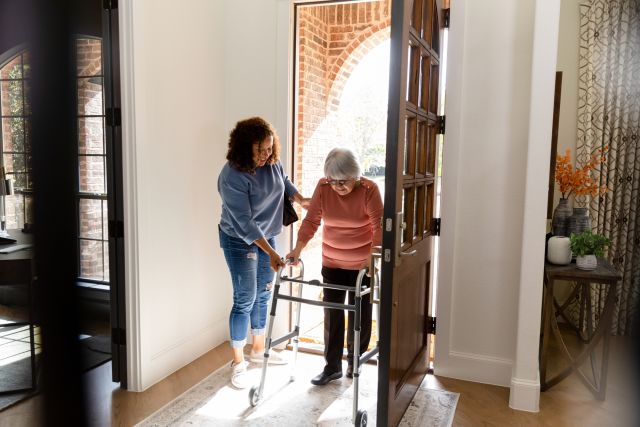Updated on January 29, 2024.
Nothing prepared Pat Nixon for the day in February 2011 when her husband, Stan, only 61 at the time, suffered a massive stroke. Now paralyzed on his right side, he also suffered brain damage because his stroke occurred in the pons, or brainstem, which governs consciousness and communication between the brain and the body. “My entire life changed that day, and it will never be the same,” Nixon says.
After one month in rehab—the maximum amount of time their insurance covered—Stan came home. Nixon has been a full-time caregiver ever since.
“He needs help with everything,” says Nixon. “My days are spent helping him dress and doing everything else. I don't leave him except to go for groceries or prescription refills,” she says. “I don't go to bed at night until I've given him his meds and put him to bed. I do this every single day.”
Despite the hardships, Nixon says “I wouldn’t change my decision today if I had to do it all over.”
No one who finds themselves in the role of full-time caregiver ever expected to be there. Yet there are as many as 53 million people in the United States serving as unpaid caregivers, many of them family caregivers, according to a 2020 report from the American Association of Retired Persons (AARP) and the National Alliance for Caregiving. They spend their days and nights caring for elderly parents, spouses, and children, uncompensated and very often un-thanked.
If you’re a caregiver, try these tips for taking care of yourself:
Call on family and friends. It’s okay to ask for help. Hold a family meeting to discuss your loved one’s condition and give specific ways everyone can pitch in.
Explore local resources. Half of all caregivers try to go it alone, often because they don’t know what caregiving support services are available. Find out what services your community provides. Adult day services, hired companions, respite care, certified nurse aides, and home health aides can all help in a number of ways, from preparing meals to providing transportation and even light housekeeping.
Watch for signs of burnout. Caregiving can take a tremendous toll on your own health. Learn to recognize the warning signs of caregiver burnout and know when to let others help you.







